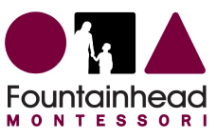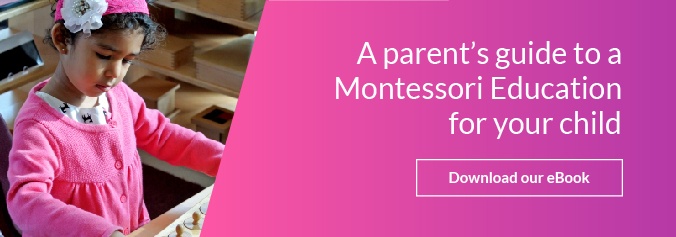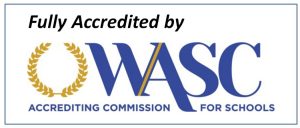Three of the core tenets of the Montessori Method are that children are naturally smart, school should prepare students for success in life, and that collaboration with others is an essential part of learning. These tenets are applied to the design of the Montessori classroom at all levels – even preschool. Keep reading for specific examples of how the tenets of the Montessori Method are applied in the preschool classroom to provide students with a positive and productive first experience of school.
Allows for exploration of natural curiosity
The preschool Montessori classroom reflects the belief that children are naturally smart by allowing students to tap into their natural curiosity. The Montessori Method posits that children learn best when they can choose how they explore a topic. If they are allowed to follow their curiosity, learning will happen naturally. One way this is done in the preschool Montessori classroom is by providing students with opportunities for sensorial and art media exploration. This exploration feels like fun to the child and fosters independent learning.
Teaching necessary life skills
Another core element of the Montessori Method that can be seen applied in the preschool classroom is the belief that school should prepare students for success in life. One way this goal is achieved with young students is by providing them with opportunities to practice practical life activities. These include basic but essential skills such as cleaning with tools, organizing, and dressing (removing and putting on their coat, etc.) Learning these practical life skills will benefit students in the classroom and at home.
Providing opportunities for socialization
The belief in the Montessori Method that collaboration with others is an essential part of learning is applied in the preschool classroom by providing opportunities for socialization. Students in the Montessori classroom get the chance to collaborate with each other through classroom and small group activities. Students also get ample opportunities to interact with the teacher and assistant in the classroom because it is intentionally designed to have a small student to teacher ratio. Being able to collaborate and interact with others is a skill that students will use in a wide variety of situations in both school and life.
The philosophy behind Montessori education can be applied effectively in a variety of classroom settings. Students in preschool are not too young to benefit from the application of the Montessori Method. They can start learning important and life-long skills from the very first day of class. The way that the Montessori Method is applied in the preschool classroom provides a positive first experience in school and will help students gain independence and confidence. You can learn more about the core tenets of the Montessori Method on the Fountainhead Montessori Blog and through the resources in the Parent Library.












Let us know what you think about this post
Put your Comment Below: